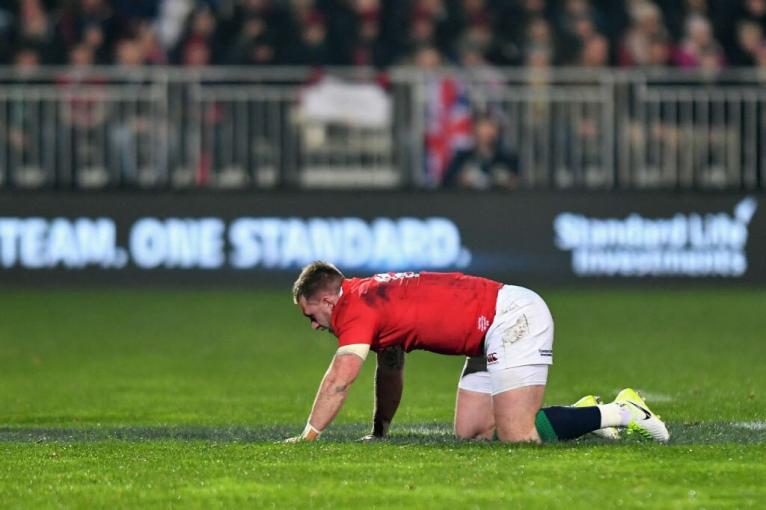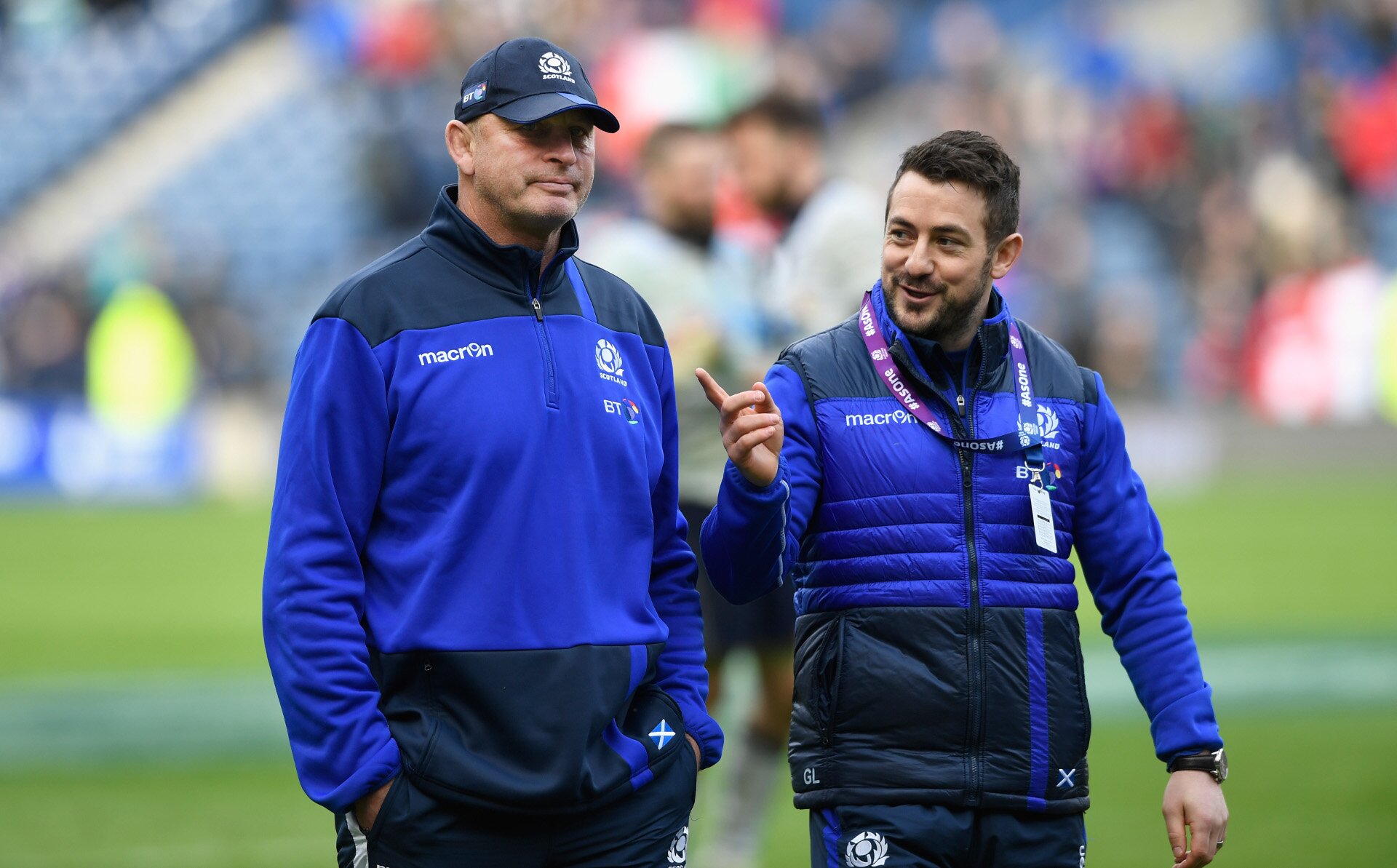'He’s of interest to us' - Vern Cotter on the Top14 money myth and why Stuart Hogg will end up in England and not France

You can hear the wistfulness in Vern Cotter’s voice, sense those infamously terrifying eyes and baritone growl soften just a little when he talks about Scotland, the three years he spent there and the colossal imprint he left behind.
Horse-riding in North Berwick. Deer-stalking in the mountains. Drinking in the beauty of the rolling dunes, the salt-pang in the breeze and the stunning coastal vistas.
He reminisces about the joy he felt watching a talented but callow group of players flourish. The great swell of satisfaction that came with “restoring pride to Scottish rugby”, beleaguered and let-down for an age.
Cotter’s great legacy in Scotland is not that scores of fine young players emerged on his watch, but that with him at the helm, they learned how to win. They played exhilarating rugby. They were unburdened by failures of the past. He taught them to believe, that Scotland needn’t and shouldn’t be perennial whipping boys and Wooden Spoon-ers.
Cotter led Scotland to their first win over France, first three-win Six Nations and first opening-round victory in a decade. They beat Joe Schmidt’s Ireland and Warren Gatland’s Wales for the first time since 2013 and 2007 respectively.
They got to a World Cup quarter-final and would probably have made it to the semis had Craig Joubert not given Australia that notorious late penalty which still rouses Scots drenched in sweat during the night.
“The most special moment was seeing the players enjoy themselves, express themselves and grow in confidence, and have a purpose to do well for their team-mates and for Scotland,” Cotter tells RugbyPass. “Seeing the supporters and the public enjoy the performances. It was great to feel a buzz, it was special at Murrayfield, they could see things could change and Scotland could win. We got a lot of pleasure from that.
“One journalist today rang and said, ‘What do you think about the 2015 World Cup quarter-final?’

“That’s a hard one to bring up because we were very proud to have made the quarter-final, we’ve always got these what-ifs because we know we’d have given Argentina a good go [in the semi-final] if the referee had made a different decision. These are things that bind the group of men together. Very strong bonds and great memories. Every time we were together was a great moment.”
Cotter is back in France now, where he has spent vast swathes of his playing and coaching career. His Montpellier team were beaten finalists in last year’s Top 14. Despite being shorn of numerous key players through injury, and in Cotter’s words “running on diesel”, they have a reasonable haul of 16 points from their opening six league fixtures.
Like many clubs across the continent, he is keeping one of those piercing eyes trained on Stuart Hogg. Twice player of the Six Nations under Cotter, the full-back’s Glasgow contract expires in the summer and Montpellier are among the interested parties.
Although the Top 14 salary cap is around £10m – £3m greater than the Aviva Premiership’s limit – English clubs can sign two marquee players exempt from those constraints.

Cotter says that means Hogg will probably be offered more money in England, with Exeter Chiefs and Wasps also making some early enquiries.
“He’s a man I appreciate and a player who would add value to any squad,” the former Clermont head coach says. “He’s of interest to us, because he’s off-contract, as he is to a large number of clubs.
“As much as everybody says there’s money in France, we’re all run very strictly by salary cap, and I think financially the Premiership teams have probably got the nudge on us – even if we have money, we still can’t spend it. So he’d be of interest to us, but the bigger offers will be elsewhere.
“We have an envelope, we can only spend within it and you’ve got to have a 45-man squad now. Gone are the days where you got through a season at this level with 30 players. You’ve got to budget for 45 players and everybody has to have a piece of it.

“The big-spending French clubs is almost a myth now. The demands of rugby require big squads to get through long, hard seasons and marquee players in English clubs have definitely got a financial advantage over French clubs. We’ll see less and less big-spending French clubs unless there’s a change in the salary cap regulation.”
Top 14 clubs must also ensure 55% of their elite squads and 14 of their match-day players are home-grown, either by spending three years in a French academy before the age of 21, or by being registered with the FFR for five years prior to turning 23.
“You have to factor in the time he won’t be there, he’s got Six Nations, a World Cup, and he needs to be replaced, and also the fact he’s a non-French player and hasn’t come through a French academy,” Cotter adds. “But you also factor in the fact that he’s an exciting player, the Top 14 has been ranked as the top club competition in the world and players like Stuart Hogg need to be involved to keep spectators and television rights and everybody excited about the competition.
“I haven’t spoken to him directly. He’s injured so I don’t know whether he’ll come over and see [Scotland colleagues] Greig Laidlaw [at Clermont] and Finn Russell [at Racing 92], and if he does, I’m in touch with Greig quite often, we play Finn in a few weeks’ time, so I might run into him.”

The big New Zealander will run into a few old friends next weekend, when Montpellier begin their Heineken Champions Cup journey against Richard Cockerill’s rejuvenated Edinburgh. Another experienced, straight-talking leader, Cockerill has engendered a brilliant transformation at a club that had languished and infuriated for years.
“There was always this determination at Edinburgh, you could feel it, the rumblings, they wanted to become as competitive and well-recognised within Scotland as Glasgow were,” Cotter recalls.
“It was a desire within the team and Richard’s done well in federating everybody, giving them a focus and a purpose and they play with a purpose. They probably benefited from some direct coaching plans. They play a style that suits them and they’re happy with what they’re doing.
“I’ve been impressed with the way they’ve brought a tougher edge, very well organised ,aggressive pack of forwards. They master all of the forwards set-phase requirements to get ball and stop opposition handling ball and they defend well.
“Once they open up a bit of space for Duhan van der Merwe, Blair Kinghorn, Matt Scott, a good combination who work well together, there’s good cohesion. I think they’ve done a great job and they’ll be a real handful for us.” In typically deadpan, vigorously understated fashion, Cotter sums up his time at Murrayfield as “good fun”. His family still go back north visit the friends they made and Laidlaw, his cherished former captain, stopped by for dinner last month.
In truth, “Stern Vern” loved Scotland.
And Scotland will always owe a debt of thanks to the gruff Kiwi of few words who taught them to rise again.




























